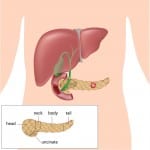Welcome to the latest Medical News Summary blog from the 30th May to the 5th June 2016. This week, we’re covering research on human embryo development, pancreatic cancer life expectancy and human organs growing in pig foetuses. Get all you need to stay updated on the most recent medical developments, and use your knowledge to help stand out in your application and at interview!
Healthy babies can develop from abnormal embryo cells

On 30th March, the Telegraph reported that embryos with abnormal cells can still develop into healthy babies without birth defects. This new study, by Professor Magdalena Zernicka-Goetz has been carried out in light of her own personal experience of giving birth to a healthy baby at the age of 44, despite tests showing there was a high chance of her son developing defects.
Normally, a healthy embryo should have 23 pairs of chromosomes – including 22 pairs of chromosomes and one pair of sex chromosomes. However, some embryos can have numerous copies of chromosomes, leading to defects and disorders. An example of this is Down’s Syndrome, which is caused by three copies of chromosome 21.
Tests such as chorionic villus sampling (CVS) which examines cells from the placenta (taken between the 11th and 14th weeks of pregnancy), and the amniocentesis test, which analyses cells in the amniotic fluid (taken between weeks 15 to 20) are offered to women who’s offspring are at higher risks of developing disorders.
Prof Zernicka-Goetz’s own CVS test results showed that up to a quarter of the cells in her placenta were abnormal. Still, little is known about the potential abnormalities that could develop in an embryo, and she gave birth to a healthy baby.
When thinking about this news story, it is interesting to consider the implications of bad test results on mothers’ decisions on abortion.
New drug combination leads to increased pancreatic cancer survival rate

As reported by The Guardian on 3rd June, a study led by the University of Liverpool has found that patients prescribed a mix of two ‘off-patent’ drugs increased the chances of surviving five years from 16% to 29%. Only 20 years ago, pancreatic cancer was a deadly diagnosis, with 100% of sufferers dying within 12 months.
However, two drugs used in combination: gemcitabine (the standard chemotherapy drug) and capecitabine (a second chemotherapy drug) are going to be routine treatment for all patients. A bonus of this combination is that there are very few side-effects when compared to other cancer treatments. One of the worst symptoms of cancer treatments is fatigue. According to Prof John Neoptolemos from the University of Liverpool, “the last thing you want if you may be going to die of cancer is fatigue”. Positively, with gemcitabine and capecitabine, the rate of fatigue is just 6%.
Notably, this trial would not have been possible without funding from Cancer Research UK. This is because both drugs are ‘off-patent’, which means there are no patent restrictions on them and they can be produced cheaply. Therefore, drug companies would be unwilling to fund such a study because profit margins are too small.
Transplant organs could be grown inside pigs

On 5th June, the BBC reported the news that a bid has been placed to develop human organs inside pigs. In the US, human stem cells have been injected into pig embryos to produce chimeras – a human-pig embryo.
These embryos should look and behave like pigs, but will have one human organ. In the research team at the University of California, the embryos are grown in sows for 28 days, and they are then terminated in order to be examined.
A number of factors to be considered with story are animal viruses that could be transferred or contracted and animal suffering. To get the full story from the BBC, click here.
